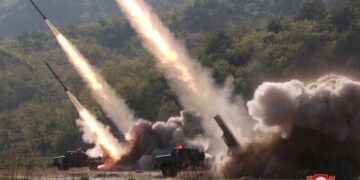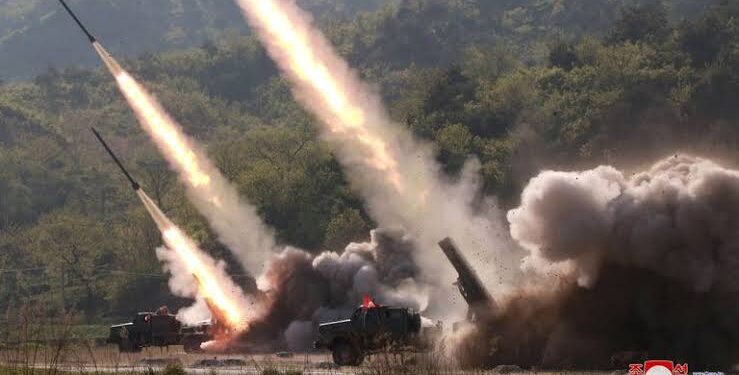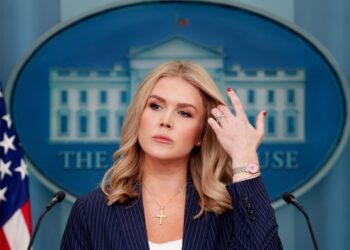By John Ikani
North Korea has fired two suspected short-range ballistic missiles into the sea in its fourth weapons test this month, South Korea’s military said, as Pyongyang continues a wave of unusual flurry of tests that have triggered condemnation at the United Nations.
The missiles were reportedly launched from an airport near Pyongyang early on Monday, said South Korea’s military. Japan also confirmed the test.
South Korea’s Joint Chiefs of Staff said on Monday that the North likely fired two ballistic missiles from the Sunan airport in the capital, and that they travelled 380km (236 miles) to a maximum altitude of 42km (26 miles).
Nobuo Kishi, the Japanese defence minister, said the missiles appeared to have landed in the ocean near North Korea’s east coast.
“It is self-evident that the aim of North Korea’s frequent missile launches is to improve their missile technology,” he told reporters.
“The repeated launching of North Korea’s ballistic missiles is a grave problem for the international community, including Japan,” Kishi added.
The United States military’s Indo-Pacific Command said it assessed that the launch did not pose an immediate threat to the US or its allies, but “these missile launches highlight the destabilising impact of (North Korea’s) illicit weapons programme”.
The UN prohibits North Korea from ballistic and nuclear weapons tests, and has imposed strict sanctions.
But the East Asian state regularly defies the ban, and leader Kim Jong-un has vowed to bolster his country’s defences.
On Friday it said it had fired short-range ballistic missiles from train cars, while days earlier it conducted two tests of what it claims were hypersonic missiles, which are harder to detect.
What you should know
The frequency of the tests and timing in January is unusual. North Korea tends to conduct its missile launches to mark politically significant events in the country, or as a sign of its displeasure at US-South Korea military exercises.
Talks with the US, which wants North Korea to give up its nuclear weapons, have stalled since US President Joe Biden took over. Mr Biden’s administration imposed its first sanctions on North Korea last week, in response to some of the earlier tests this month.
Monday’s launch could therefore be a “stronger reaction” to the sanctions, showing that “the North has no intention to be out-muscled by the US,” said Park Won-gon, a North Korean studies professor at Ewha Womans University.




































